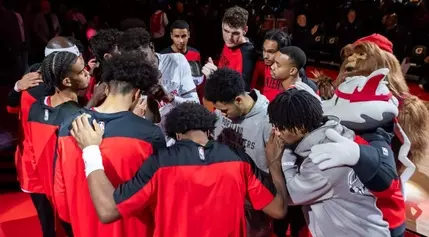
The Big 12's Nonconference Challenge: TCU and BYU's Unique Scheduling Hurdles
As the 2023 college football season approaches, the Big 12 Conference is facing a unique scheduling challenge, with only two teams set to play multiple road games in their nonconference slate. The schools in question are TCU and BYU, each navigating their own set of circumstances as they prepare for the upcoming campaign.Navigating the Nonconference Landscape: TCU and BYU's Differing Approaches
TCU's Calculated Approach: Balancing Power Five Challenges
TCU's nonconference schedule is a testament to their commitment to playing tough opponents. The Horned Frogs will visit Stanford to start the season and then travel to SMU, their long-standing in-state rival, in a series that alternates home sites every year. While this slate may seem daunting, it is a calculated move by the program to prepare for the rigors of Big 12 play.TCU's decision to face Power Five opponents on the road is understandable, as it provides valuable experience and a chance to measure their team's mettle against top-tier competition. The proximity of the SMU rivalry game also adds a unique element, as the Horned Frogs and Mustangs can easily navigate the short trip between campuses.
By embracing these challenging nonconference matchups, TCU is demonstrating a commitment to excellence and a willingness to test their squad against the best. This approach may not be easy, but it could pay dividends in the long run as the Horned Frogs aim to establish themselves as a contender in the revamped Big 12 landscape.
BYU's Ambitious Scheduling: Balancing Independence and Big 12 Transition
In contrast, BYU's nonconference schedule presents a greater challenge, as the Cougars have elected to play two road games against a Group of Five program and a Power Five opponent. The first game will take them to SMU, while the second will have them traveling over 1,000 miles to face Wyoming.BYU's athletic director, Tom Holmoe, acknowledges that this scheduling decision is atypical and possibly the most difficult situation in the league. The Cougars' transition from independence to the Big 12 has forced them to rework their previously scheduled nonconference games, leading to this unique predicament.
Holmoe explored various options to alleviate the burden, including the possibility of buying out the Wyoming contract. However, the Cougars' commitment to honoring their previously agreed-upon commitments took precedence, and they decided to move forward with the challenging back-to-back road games.
While some might have expected BYU to pay the buyout and avoid the Wyoming game, the Cougars' unwavering dedication to their principles has surprised even their opponents. Wyoming head coach Jay Sawvel admitted that he fully anticipated the Cougars to back out of the return game, but now looks forward to a night where he doesn't have to worry about the fan base showing up.
Navigating Scheduling Complexities: BYU's Unique Challenges
Holmoe's explanation of how BYU's schedule arrived at this point sheds light on the intricate process of transitioning from independence to the Big 12. The Cougars went from having 12 nonconference games per season to just three, forcing Holmoe and his team to carefully manage previously scheduled contests.With the Big 12's requirement of at least one Power Five opponent in the nonconference, BYU found itself in a difficult position. Despite not receiving a waiver from the conference, Holmoe worked with scheduling expert Dave Brown to find a suitable Power Five opponent on short notice, ultimately landing on SMU as the best option.
The decision to play back-to-back road games against SMU and Wyoming was not an easy one, but Holmoe acknowledged that it was the "best-case scenario" given the limited options available. The Cougars' commitment to honoring their existing contracts and their desire to maintain a balanced home and away schedule further complicated the process.
As BYU looks to the future, the challenges of scheduling will only intensify. The Cougars' conference schedule is booked for over a decade, making it nearly impossible to achieve the coveted seven home games that many SEC teams enjoy. Holmoe's candid admission that eight home games are an unrealistic goal for the program underscores the complexities they face in navigating the shifting landscape of college football.
New


















